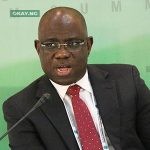President Bola Tinubu has publicly credited the decision to exempt the Federal Capital Territory (FCT) from the Treasury Single Account (TSA) as the catalyst behind a significant surge in infrastructure development and the revival of long-dormant projects in the nation’s capital. Speaking during a Sallah homage at the Presidential Villa, Tinubu highlighted the transformative impact of this policy shift.
“I remember the day the FCT Minister came to me and said, ‘Please take us out of the problem of the TSA so that I can do more work and achieve more,'” President Tinubu recounted. “I asked him to show me his plans, and since then, everything started changing rapidly.”
The TSA, a unified banking structure designed to consolidate government funds for enhanced financial control, had previously placed stringent restrictions on the FCT’s ability to execute projects. However, Tinubu’s decision to grant an exemption has seemingly unleashed a wave of progress.
According to the President, this move has led to the “opening up of rural areas by the FCT, the resuscitation of abandoned projects, and completion of the Vice President’s official residence that was abandoned for years.” This acceleration has also extended to road network expansions, improved healthcare facilities, and bolstered security measures within the FCT.
The driving force behind this transformation is FCT Minister Nyesom Wike, whose leadership Tinubu commended. “We are seeing the results,” Tinubu stated, emphasizing the importance of evaluating leadership based on tangible outcomes rather than ethnic or religious affiliations.
Read Also: Wike Vows Aggressive Revenue Drive After Record IGR
Wike, in his remarks, expressed gratitude to the President for enabling the FCT to operate with greater efficiency. He assured that his administration remains committed to delivering projects that enhance the quality of life for FCT residents.
The Treasury Single Account (TSA) is a unified banking framework that consolidates all government payments and receipts to enhance financial control. Its primary objectives include improving transparency, ensuring effective cash flow management, optimizing borrowing costs, and eliminating inefficiencies from maintaining multiple accounts across financial institutions. In practice, this means government agencies are prohibited from operating independent bank accounts, requiring all public funds—budgetary and extra-budgetary—to be centralized under Treasury oversight. The TSA follows two models: a single banking institution maintains the main TSA and its sub-accounts, or the main TSA is held in one institution, while zero-balance ledger sub-accounts (ZBAs) exist in others, with daily balance transfers to the main TSA at the Central Bank of Nigeria (CBN) or a designated institution.
Furthermore, President Tinubu addressed the broader economic landscape, noting that food prices are stabilizing, businesses are thriving, and national unity is strengthening. He attributed these positive trends to his administration’s policies.
The event at the Presidential Villa was attended by key government figures, including Vice President Kashim Shettima, National Security Adviser Nuhu Ribadu, and Minister of Information and National Orientation Mohammed Idris, as well as traditional and religious leaders, lawmakers, security chiefs, and representatives of youth and women groups.
This development in the FCT highlights the intricate balance between financial regulation and administrative efficiency, with the Tinubu administration signaling a focus on delivering tangible results to the Nigerian populace.









